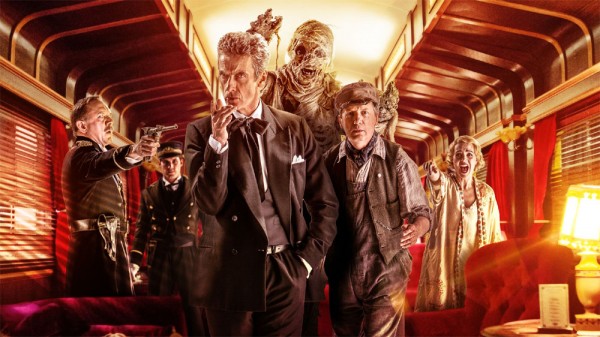Okay, hands up anyone who knew that this episode would crack an ‘Are you my Mummy?’ joke!
Yep, that’ll be just about everyone then…
With a title this brazen, we’d have been disappointed if ‘Mummy on the Orient Express’ had eschewed predictability. The latest in a sub-genre of Doctor Who stories that have given us aliens messing around in historical re-enactments – we can only hope for ‘Scorpions on the Hindenburg’ next – this shares with such episodes as ‘Voyage of the Damned’ the twin impulses of schlocky pastiche and sumptuous recreation.
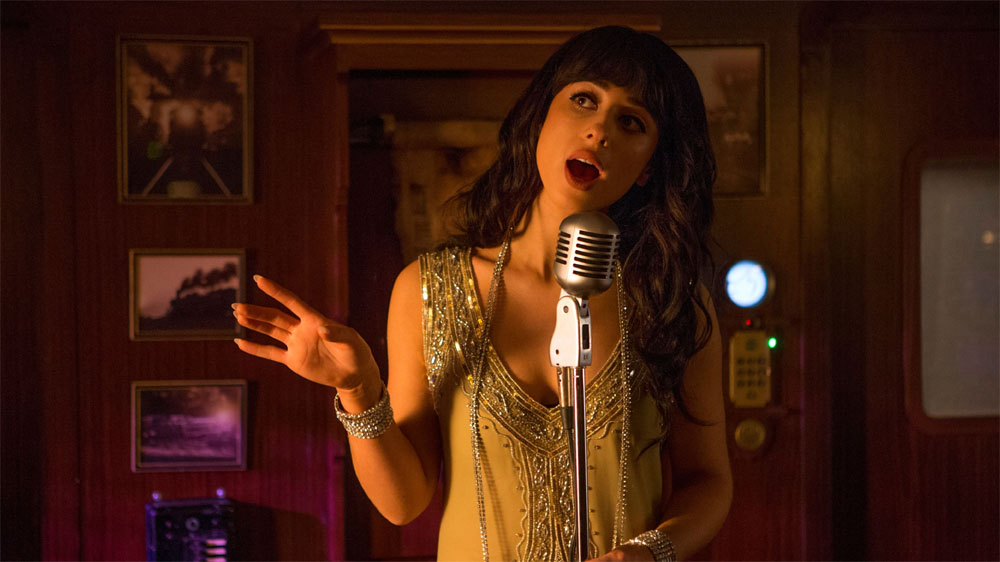
So many Agatha Christie archetypes are present and correct: the overbearing matriarch, the emotionally volatile ingénue, the compromised figure of authority… The minute Daisy Beaumont’s china-brittle Maisie fingers the Doctor for being a liar – which he is, just not in that moment – is the minute the episode happily lays its cards on the table as more hokey than horror. Even more than usual, composer Murray Gold rises to the occasion with a velvety filmic score that allows him to marvellously channel his inner Poirot.
And yet, as murder mysteries go, this episode is remarkably short on mystery, unless you count the question of who or what is Gus. [Clue: ‘The voice of John Sessions’ is not a sufficient answer.] We know what is causing the murders – the Mummy looking grimly cadaverous – what we don’t understand initially is why it kills in 66 seconds or why only its victims can see it.
There’s a touch of playground-bait about this – executive producer, Steven Moffat, typically favouring monsters with an easily replicable USP – but truthfully not every Doctor Who monster needs its playground-friendliness to be so baldly spelled out. Sometimes the viewers can be left themselves to seize upon the thing which hooks them.
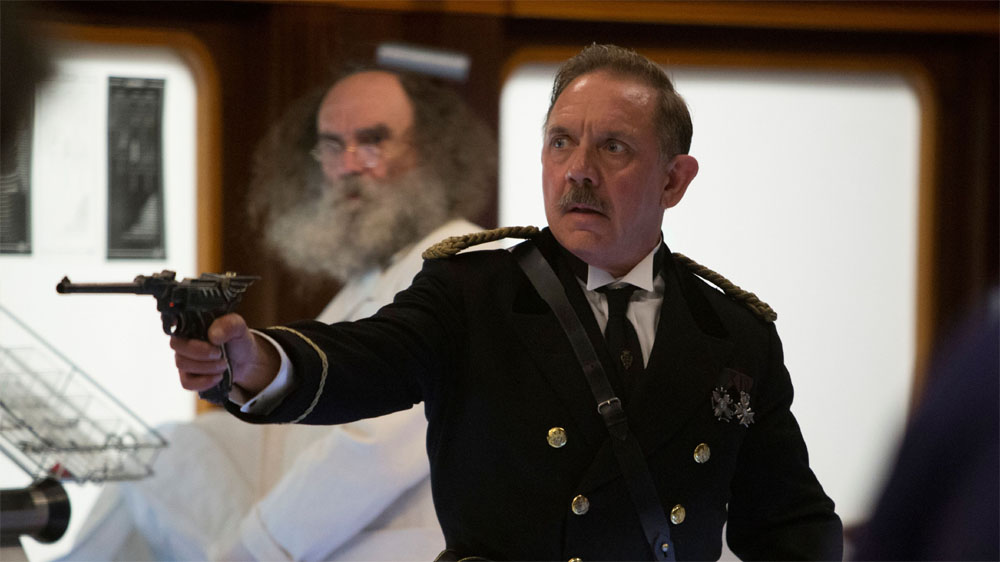
However, where the 66 seconds rule does score a hit is in allowing for that countdown clock to appear onscreen. We surely can’t be the only television aficionados who have had our teeth ground down over the years by the number of emergency countdowns that have not taken place in real time. You know the sort of thing – exactly 30 seconds to save the world, and two minutes later, they’re still cutting the wires. So, it’s a wonderful thing when a drama actually honours that promise: 66 seconds is exactly what we get.
What’s more – as tension-building devices go, the countdown clock allows for at least one neat bit of misdirection. As Clara and Maisie are trapped behind the door, we are invited to believe that the Foretold has come for them. The clock begins, the Sarcophagus opens, and yet, at this point, neither Clara nor Maisie have glimpsed what we assume to be the Mummy emerging. It looks like an error of editing – a case of jumping the gun – but the truth is more cunning: the Foretold has not come for them, but for the train guard.
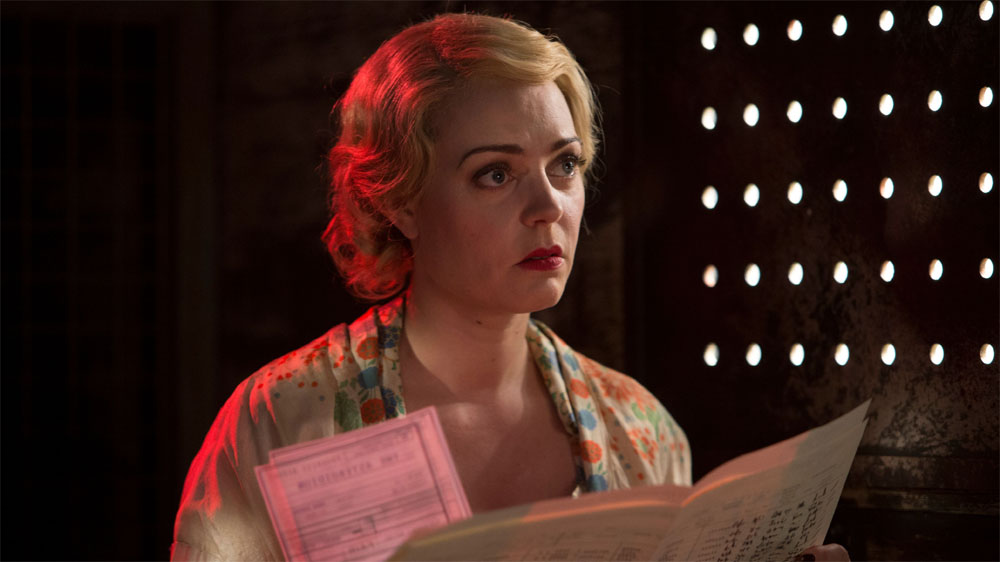
You can see why such a cast were attracted to the episode: the period recreation is as sure-footed as the Mummy is shambling.
Any episode that is willing to sacrifice as excellent an actress as Janet Henfrey before the opening credits knows that it is in possession of a uniquely strong cast, and so it is here, with welcome Doctor Who returns for Henfrey and Christopher Villiers, as well as a first appearance for an actor, in David Bamber, who somehow should have been in Doctor Who years ago, but never was.
Foxes may have garnered much of the pre-publicity for her reinterpretation of ‘Don’t Stop Me Now’, but it’s little more than a touch of Baz Lurhmann-style jazz pastiche: an opportunity for the episode to comment self-reflexively on its hectic impetus to adventure.
For most Doctor Who fans, the greater persons of interest are the companion figures: Jenna Coleman’s Clara, whose disillusionment with the Doctor post-‘Kill the Moon’ hasn’t stopped her from dressing up in full flapper gear, and Perkins, as played by Frank Skinner: a self-confessed Doctor Who fan finally given the tracks to the train set – and even, in one final moment, the chance to travel on board the TARDIS.
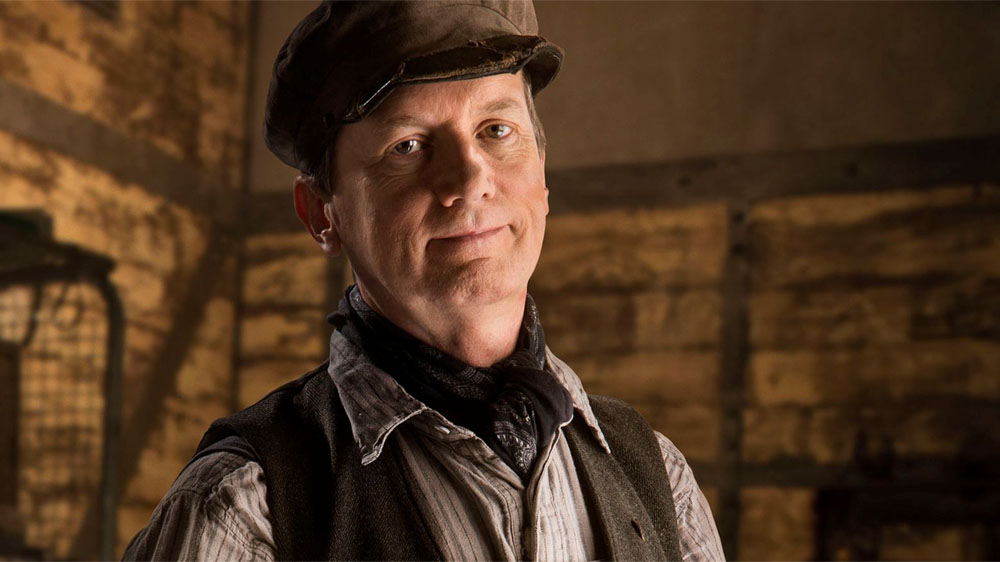
Skinner’s performance is worthy of note: far better than perhaps many had feared, and with some deliberate notes of sarcasm, and cold ambiguity, that elevate Perkins beyond ‘Joe Everyman’.
As for Clara: her involvement in the adventure was one which the BBC – in typically push-me, pull-you mode – first revealed weeks ago in the official synopsis, then demanded journalists hide from the audience in previews.
But, in the event, Clara’s reappearance is neither thrilling nor revelatory – merely as it needed to be: a chance for the companion to remember why she still admires the Doctor, despite everything. We don’t know what concerts Clara attended in her youth, but we do know that they deliver a nice line in psychobabble. Hate is too strong an emotion to waste on people you dislike, apparently. Thus Clara and the Doctor are best friends – of a kind – again.
However, although Clara and the Doctor may have resolved their differences, I must confess that, for this reviewer at least, the Doctor’s apparent callousness, and tendency to mordant sarcasm, is still proving a barrier to accepting Capaldi fully in the part.
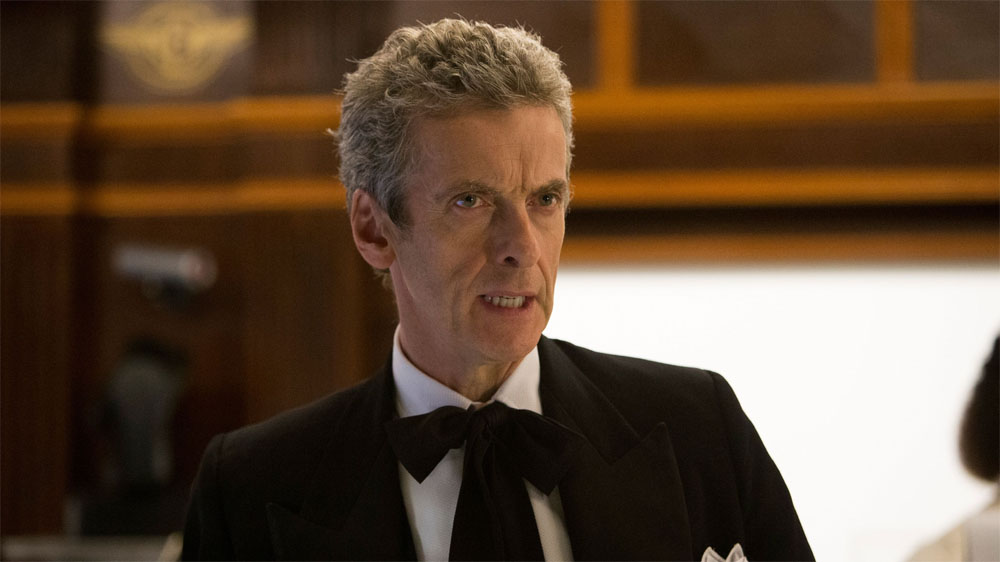
No one can dispute the quality of the performance, nor of the dialogue he is given; but too often it feels like ‘Peter Capaldi playing the Doctor’, rather than the Doctor himself, front and centre, leaping out of the television screen with all his certainty and integrity and beneficence.
The gags are terrific – the Doctor styling himself as first a Doctor of Intestinal Parasites, then as a Mystery Shopper. Or the scenes where, like Mr Punch, he lectures himself with a brooding mania that seems potentially on the edge of violent breakdown. But, although it is the Doctor who saves the day, by internalising Maisie’s grief and trauma, it perhaps still doesn’t quite feel like the Doctor standing there. Not fully. There’s a second beach scene in two weeks, where the Doctor and Clara sit in almost-reconciliation, but sat at home, this viewer wasn’t sold on their reunion.
Perhaps, like all good murder mysteries, this story held one last mystery back. The triangular relationship between the Doctor, Clara and Danny is definitely heading somewhere. The question is… where?
![]()
Aired at 8.35pm on Saturday 11 October 2014 on BBC One.
> Order Season 8 on DVD on Amazon.
> Order Season 8 on Blu-ray on Amazon.
What did you think of episode? Let us know below…

